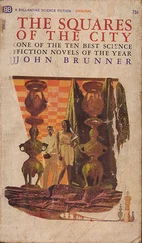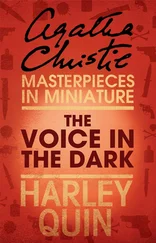O'Henry - The Voice of the City
Здесь есть возможность читать онлайн «O'Henry - The Voice of the City» весь текст электронной книги совершенно бесплатно (целиком полную версию без сокращений). В некоторых случаях можно слушать аудио, скачать через торрент в формате fb2 и присутствует краткое содержание. Жанр: Классическая проза, Юмористическая проза, на английском языке. Описание произведения, (предисловие) а так же отзывы посетителей доступны на портале библиотеки ЛибКат.
- Название:The Voice of the City
- Автор:
- Жанр:
- Год:неизвестен
- ISBN:нет данных
- Рейтинг книги:5 / 5. Голосов: 1
-
Избранное:Добавить в избранное
- Отзывы:
-
Ваша оценка:
- 100
- 1
- 2
- 3
- 4
- 5
The Voice of the City: краткое содержание, описание и аннотация
Предлагаем к чтению аннотацию, описание, краткое содержание или предисловие (зависит от того, что написал сам автор книги «The Voice of the City»). Если вы не нашли необходимую информацию о книге — напишите в комментариях, мы постараемся отыскать её.
The Voice of the City — читать онлайн бесплатно полную книгу (весь текст) целиком
Ниже представлен текст книги, разбитый по страницам. Система сохранения места последней прочитанной страницы, позволяет с удобством читать онлайн бесплатно книгу «The Voice of the City», без необходимости каждый раз заново искать на чём Вы остановились. Поставьте закладку, и сможете в любой момент перейти на страницу, на которой закончили чтение.
Интервал:
Закладка:
At the end of the two years Miss Ray suddenly announced to her dear friend, Miss D'Armande, that she was going to spend the summer at an antediluvian village on the north shore of Long Island, and that the stage would see her no more.
Seventeen minutes after Miss Lynnette D'Armande had expressed her wish to know the whereabouts of her old chum, there were sharp raps at her door.
Doubt not that it was Rosalie Ray. At the shrill command to enter she did so, with something of a tired flutter, and dropped a heavy hand-bag on the floor. Upon my word, it was Rosalie, in a loose, travel-stained automobileless coat, closely tied brown veil with yard-long, flying ends, gray walking-suit and tan oxfords with lavender overgaiters.
When she threw off her veil and hat, you saw a pretty enough face, now flushed and disturbed by some unusual emotion, and restless, large eyes with discontent marring their brightness. A heavy pile of dull auburn hair, hastily put up, was escaping in crinkly, waving strands and curling, small locks from the confining combs and pins.
The meeting of the two was not marked by the effusion vocal, gymnastical, osculatory and catechetical that distinguishes the greetings of their unprofessional sisters in society. There was a brief clinch, two simultaneous labial dabs and they stood on the same footing of the old days. Very much like the short salutations of soldiers or of travellers in foreign wilds are the welcomes between the strollers at the corners of their crisscross roads.
"I've got the hall-room two flights up above yours," said Rosalie, "but I came straight to see you before going up. I didn't know you were here till they told me."
"I've been in since the last of April," said Lynnette. "And I'm going on the road with a 'Fatal Inheritance' company. We open next week in Elizabeth. I thought you'd quit the stage, Lee. Tell me about yourself."
Rosalie settled herself with a skilful wriggle on the top of Miss D'Armande's wardrobe trunk, and leaned her head against the papered wall. From long habit, thus can peripatetic leading ladies and their sisters make themselves as comfort. able as though the deepest armchairs embraced them.
"I'm going to tell you, Lynn," she said, with a strangely sardonic and yet carelessly resigned look on her youthful face. "And then to-morrow I'll strike the old Broadway trail again, and wear some more paint off the chairs in the agents' offices. If anybody had told me any time in the last three months up to four o'clock this afternoon that I'd ever listen to that 'Leave-your-name-and-address' rot of the booking bunch again, I'd have given 'em the real Mrs. Fiske laugh. Loan me a handkerchief, Lynn. Gee! but those Long Island trains are fierce. I've got enough soft-coal cinders on my face to go on and play Topsy without using the cork. And, speaking of corks -got anything to drink, Lynn?"
Miss D'Armande opened a door of the wash-stand and took out a bottle.
"There's nearly a pint of Manhattan. There's a cluster of carnations in the drinking glass, but -"
"Oh, pass the bottle. Save the glass for company. Thanks! That hits the spot. The same to you. My first drink in three months!"
"Yes, Lynn, I quit the stage at the end of last season. I quit it because I was sick of the life. And especially because my heart and soul were sick of men of the kind of men we stage people have to be up against. You know what the game is to us -it's a fight against 'em all the way down the line from the manager who wants us to try his new motor-car to the bill-posters who want to call us by our front names.
"And the men we have to meet after the show are the worst of all. The stage-door kind, and the manager's friends who take us to supper and show their diamonds and talk about seeing 'Dan' and 'Dave' and 'Charlie' for us. They're beasts, and I hate 'em.
"I tell you, Lynn, it's the girls like us on the stage that ought to be pitied. It's girls from good homes that are honestly ambitious and work hard to rise in the profession, but never do get there. You bear a lot of sympathy sloshed around on chorus girls and their fifteen dollars a week. Piffle! There ain't a sorrow in the chorus that a lobster cannot heal.
"If there's any tears to shed, let 'em fall for the actress that gets a salary of from thirty to forty-five dollars a week for taking a leading part in a bum show. She knows she'll never do any better; but she hangs on for years, hoping for the 'chance I that never comes.
"And the fool plays we have to work in! Having another girl roll you around the stage by the hind legs in a 'Wheelbarrow Chorus' in a musical comedy is dignified drama compared with the idiotic things I've had to do in the thirty-centers.
"But what I hated most was the men -the men leering and blathering at you across tables, trying to buy you with Wurzburger or Extra Dry, according to their estimate of your price. And the men in the audiences, clapping, yelling, snarling, crowding, writhing, gloating -like a lot of wild beasts, with their eyes fixed on you, ready to eat you up if you come in reach of their claws. Oh, how I hate 'em!
"Well, I'm not telling you much about myself, am I, Lynn ?
"I had two hundred dollars saved up, and I cut the stage the first of the summer. I went over on Long Island and found the sweetest little village that ever was, called Soundport, right on the water. I was going to spend the summer there, and study up on elocution, and try to get a class in the fall. There was an old widow lady with a cottage near the beach who sometimes rented a room or two just for company, and she took me in. She had another boarder, too -the Reverend Arthur Lyle.
"Yes, he was the head-liner. You're on, Lynn. I'll tell you all of it in a minute. It's only a one-act play.
"The first time he walked on, Lynn, I felt myself going; the first lines he spoke, he had me. He was different from the men in audiences. He was tall and slim, and you never heard him come in the room, but you felt him. He had a face like a picture of a knight -like one of that Round Table bunch -and a voice like a 'cello solo. And his manners!
"Lynn, if you'd take John Drew in his best drawing-room scene and compare the two, you'd have John arrested for disturbing the peace.
"I'll spare you the particulars; but in less than a month Arthur and I were engaged. He preached at a little one-night stand of a Methodist church. There was to be a parsonage the size of a lunch-wagon, and hens and honeysuckles when we were married. Arthur used to preach to me a good deal about Heaven, but be never could get my mind quite off those honeysuckles and hens.
"No; I didn't tell him I'd been on the stage. I hated the business and all that went with it; I'd cut it out forever, and I didn't see any use of stirring things up. I was a good girl, and I didn't have anything to confess, except being an elocutionist, and that was about all the strain my conscience would stand.
"Oh, I tell you, Lynn, I was happy. I sang in the choir and attended the sewing society, and recited that 'Annie Laurie' thing with the whistling stunt in it, 'in a manner bordering upon the professional,' as the weekly village paper reported it. And Arthur and I went rowing, and walking in the woods, and clamming, and that poky little village seemed to me the best place in the world. I'd have been happy to live there always, too, if --
"But one morning old Mrs. Gurley, the widow lady, got gossipy while I was helping her string beans on the back porch, and began to gush information, as folks who rent out their rooms usually do. Mr. Lyle was her idea of a saint on earth -as he was mine, too. She went over all his virtues and graces, and wound up by telling me that Arthur had had an extremely romantic love-affair, not long before, that had ended unhappily. She didn't seem to be on to the details, but she knew that he had been hit pretty hard. He was paler and thinner, she said, and he had some kind of a remembrance or keepsake of the lady in a little rosewood box that he kept locked in his desk drawer in his study.
Читать дальшеИнтервал:
Закладка:
Похожие книги на «The Voice of the City»
Представляем Вашему вниманию похожие книги на «The Voice of the City» списком для выбора. Мы отобрали схожую по названию и смыслу литературу в надежде предоставить читателям больше вариантов отыскать новые, интересные, ещё непрочитанные произведения.
Обсуждение, отзывы о книге «The Voice of the City» и просто собственные мнения читателей. Оставьте ваши комментарии, напишите, что Вы думаете о произведении, его смысле или главных героях. Укажите что конкретно понравилось, а что нет, и почему Вы так считаете.











